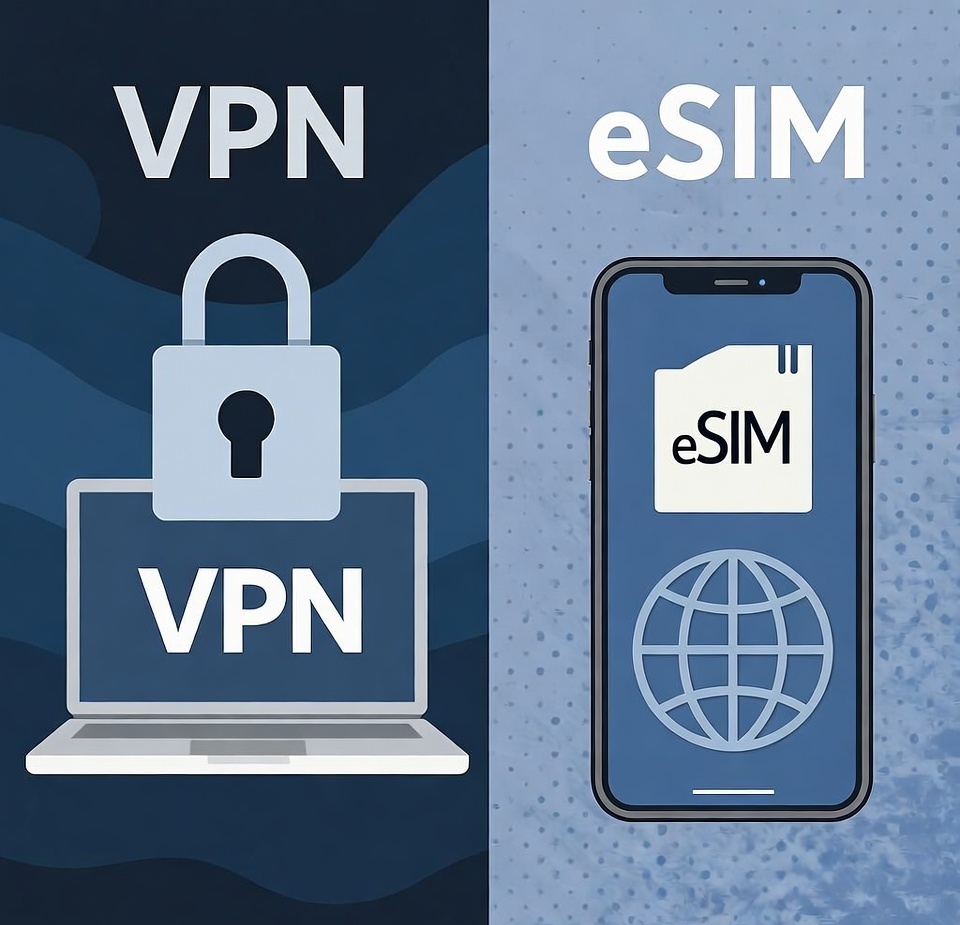
Traveling to China in 2025 presents a unique challenge for accessing the global internet. Government regulations have tightened significantly, blocking access to many familiar websites and apps — including YouTube, Google, WhatsApp, and Facebook — behind what’s known as the Great Firewall. In this context, travelers often face a tough decision: use a VPN to bypass censorship, or opt for an eSIM designed to provide unrestricted access legally. This guide explains the differences and helps you decide which option is safer and more practical for your trip.
VPNs (Virtual Private Networks) encrypt your internet traffic and route it through servers outside China, allowing access to blocked services. However, their legality, performance, and reliability are complicated.
Legal status: Unauthorized VPN use is technically illegal unless the provider is approved by the government. Although enforcement on tourists is rare, fines ranging from 500 to over 15,000 yuan (~$70–$2,200) have been imposed, and in extreme cases, users involved in “illegal activities” can face more severe consequences.
Security risks: While strong VPNs (like NordVPN, Surfshark, or ExpressVPN) offer robust encryption, Chinese authorities may still detect encrypted traffic even if they can’t read it.
Reliability issues: VPN performance varies widely — free or poorly maintained services are often blocked entirely, and even premium services can be unreliable due to deep packet inspection and IP blocking.
In short, VPNs remain the go-to method for bypassing the Great Firewall — but using them involves real legal uncertainties, potential surveillance, and unpredictable reliability.
An eSIM (embedded SIM), such as RORO eSIM, is a traditional SIM card integrated directly into your device. Some travel eSIM providers partner with local telecommunications partners in China to offer data plans that automatically route traffic through compliant networks, reducing reliance on VPNs.
Legal certainty: Since the data connection is handled by local network operators, using an eSIM to access Chinese content generally avoids legal issues associated with VPN use.
Ease of use: No need to adjust VPN settings — data works out of the box on Chinese networks.
Performance stability: Traffic isn’t encrypted or rerouted through foreign servers, so network speed and stability are typically better than VPN tunnels.
Targeted routing: Many China-specific eSIMs allow access to restricted apps (like TikTok or Weibo) without relying on VPNs.
While this option doesn’t allow bypassing the Great Firewall — so you’ll still be limited to content accessible within China — it’s the safest and most hassle-free way to use your phone legally.
RORO eSIM or similar solutions are the safest choice if you primarily need stable, legal connectivity without legal risk. You’ll have faster speeds, seamless installation, and compliance with Chinese regulations — albeit at the expense of restricted access to certain sites.
VPNs offer more freedom, but they come with legal uncertainties, slower speeds, and higher risk of detection. This option is best used only if you absolutely need to access blocked services and are willing to accept potential legal consequences.





